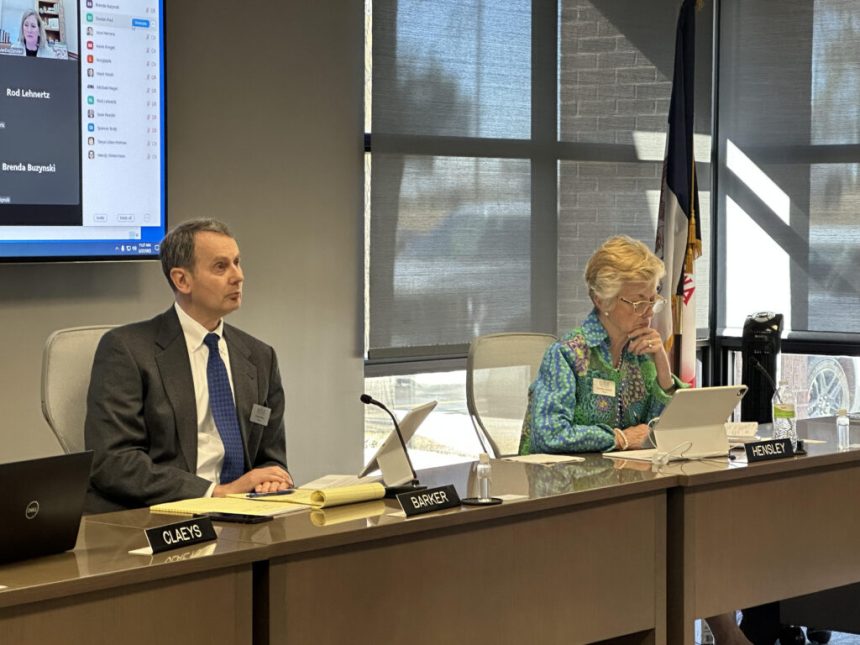The Iowa Board of Regents approved a $1 million request for mental health support finding to be added to its fiscal year 2027 appropriations request. (Photo by Brooklyn Draisey/Iowa Capital Dispatch)
The Iowa Board of Regents approved appropriation requests from state universities to keep general university funding flat for the upcoming fiscal year but allocate money toward certain projects and initiatives, including a regent-introduced line item to address mental health.
After hearing Thursday from university student governments about their plans for how funds would be used, student Regent Lucy Gipple introduced a motion to add a $1 million request to the fiscal year 2027 state appropriation ask, to go toward mental health support and resources.
Regent Greta Rouse also supported the motion, saying that mental health is something both she and the students she’s interacted with are passionate about.
“It’s very clear that … this money will be put into good goals,” Gipple said.
SUBSCRIBE: GET THE MORNING HEADLINES DELIVERED TO YOUR INBOX
The University of Iowa, Iowa State University and University of Northern Iowa have requested their general university allocations from the state be kept steady for the upcoming fiscal year, but each institution proposed programs pertaining to health care, agriculture, technology and new tuition plans.
Brad Berg, board of regents chief business officer, said during the meeting the incremental funding requests from the three universities total $8.8 million in new appropriations. With the addition of $1 million for mental health, new funding will come in at just under $10 million if the Iowa Legislature approves the requests.
Regent Robert Cramer said during the meeting board committees worked with university presidents to advise on what funding priorities they should target, leading to the decision to keep general funding flat in favor of asking for appropriations in specific areas.
Regent David Barker, the only “no” vote on the board for including mental health funding, said during the meeting there may be people outside of the universities who may need mental health support more than students, and the board needs to consider its fiduciary responsibility to Iowa taxpayers.
He commended the students on the “very well-thought-out proposal,” which has come before the board in past years, but pointed out that money allocated to this effort is money not spent on other efforts that may have a greater need.
“We provide oversight over the universities, but our ultimate duty is to the taxpayers of Iowa,” Barker said.
While she said she respected what Barker was saying, Rouse said the board is “here to advocate for students and the universities,” and lawmakers don’t have to fund the addition if they choose not to.
If board members wish to support the institutions and their leaders, who presented to the board on retention rates and other data, Gipple said seeking this funding will do just that, as well as help students and hopefully avoid potential mental health crises.
The UI’s retention rate has grown to 90.9%, university president Barbara Wilson said in her presentation to the board, after hitting its goal of 90% retention within three years instead of the projected five. She added the university admits 80% of its application pool.
“I wouldn’t feel comfortable moving to do this if it wasn’t something I truly believed was necessary,” Gipple said.









